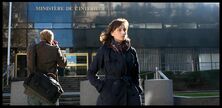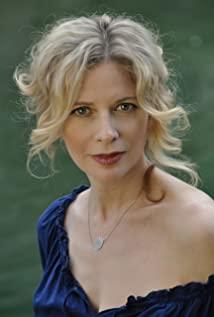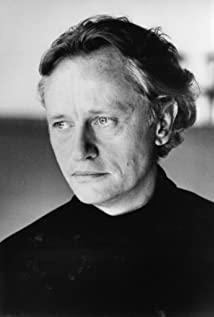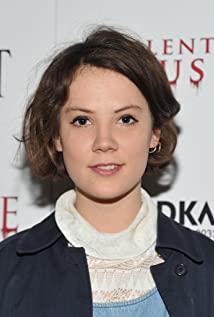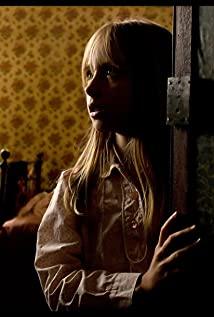I once wrote an article to point out that the play "Ba" aims to praise human nature, but it actually makes the audience keep consuming the brilliance of human nature. The structure of "Separation" is more complicated, but it also has the same problem; the purpose of the play is not to praise human nature, but to let the people in the play and the audience outside the play come back to the film through the medium of film. That historical time and space that has been forgotten by the public. The complete forgetting of ordinary people is reflected in the character's casual question and answer: Isn't Germany a comprehensive record of the massacre, why is the record of this roundup only incomplete? Julia can only reluctantly say that this roundup was not done by the Germans but by the French. Film, as if it has become a medium of education, tells the audience about the history they have forgotten; so is "Ba", so is "Ge".
This is a subject that can be developed in this play, but the director just took it lightly and turned it into the narrative: he wants to tell the story of Sarah's arrest and escape, and through Julia's pursuit to find the story after Sarah's escape , I want to let Julia reflect on her current life and her relationship with her husband through Julia's pursuit: Are there hidden rotten corners under the peaceful family life, just like the dead and smelly ones in the dark, Sarah Brother's, corpse? However, the director is so busy telling the story that he misses the opportunity to find a bigger theme: the forgetfulness of history, the disgust for the evil that is too natural and unreflective, or, conversely, the reluctance to turn a blind eye to the evil and even participate in the mid-term. The "Lucifer Effect".
Originally, going back to terrifying history can bring extraordinary shock, but the way Julia traces history is destined to make her unable to appreciate the shock. Originally it was an event about a country or a certain nation, but Julia chose to trace a small fragment in this history, and attributed this small fragment to the story of anomaly/depression/suicide caused by the individual's trauma/shock that cannot be surpassed. It is very similar to the routine of American traumatic films. As for that terrifying history, it disappeared in the director's colorful shooting, leaving behind a diary that recorded Sarah's journey. If the diary represents Sarah's key, then this key opens only a page in the heart of the long-dead woman, and Julia pursues it, as if she is satisfied when she reaches this page of her soul, as if reaching this page is a connection to history, as if When you reach this page, the task is complete.
And the most ironic thing, Julia (and Sarah's son) is opening this page in an American fine dining restaurant full of floor-to-ceiling windows. The whole pattern is to say that it is in such an environment that we experience history, and that history may only bring us a few tears and a little memory; In the space, it has been domesticated, beautified, and purified. After a few tears, the meaning of history is exhausted.
View more about Elle s'appelait Sarah reviews






